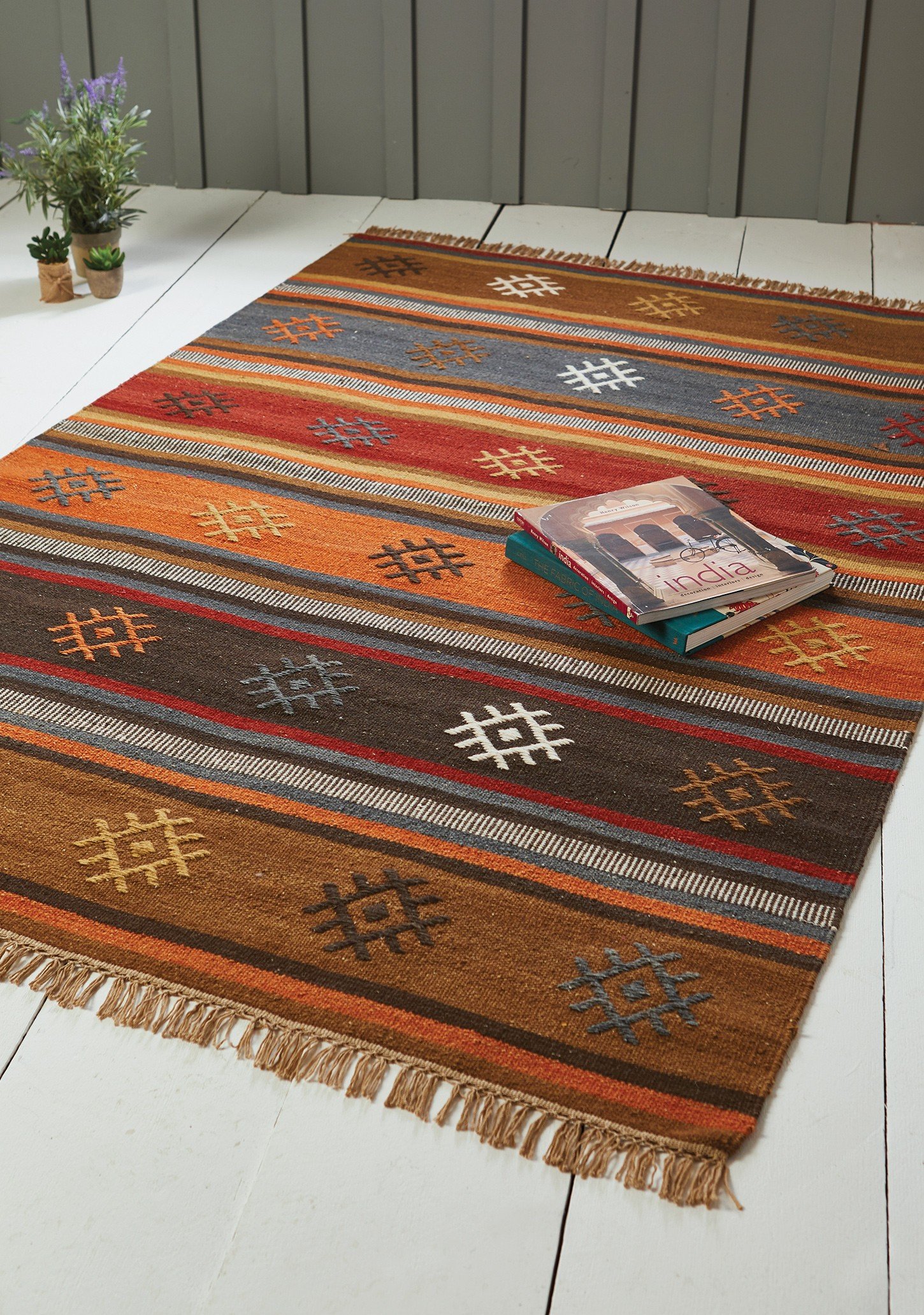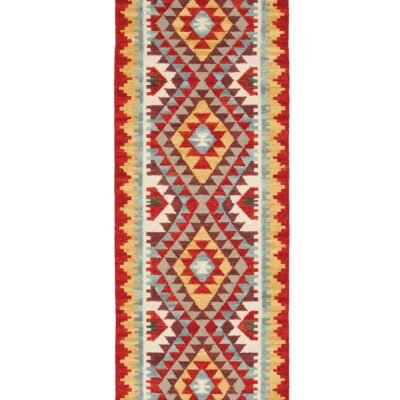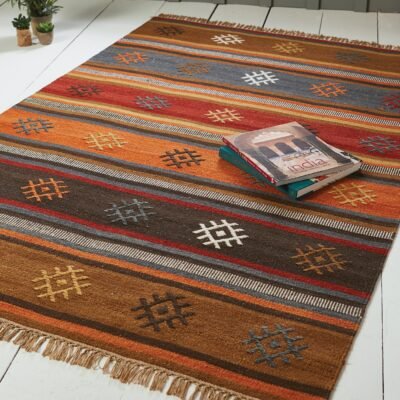Description
Juma Stripe Kilim Runner 75 x 240cm.
Description
Add a modern element to a space with a timeless, classic striped rug. The juma kilim rug is traditionally made on a handloom from a hard-wearing blend of wool and cotton, using techniques spanning generations.
Stripes in practical shades of blue/grey and russet/caramel incorporate a simple geometric symbol, finished with neutral end fringing.
A versatile design with broad appeal.
80% Wool & 20% Cotton.
.GoodWeave
Colour:
As Pics
Origin:
Hand Crafted In India
Free UK Shipping!
This item is held and will be dispatched from the UK.
Please note sizes are approximate.
KILIM RUGS
Kilim (sometimes written as Kelim) production in India can be traced back to the 16th century when the Mughal Emperor Akbar brought Persian carpet weavers back to India. These skills have been passed down through generations and our kilims are still produced using traditional eco-friendly “handlooms” operated by hand without the need for power. Handlooms produce a wonderful and authentic artisan product that should not be confused with mass-produced machine-made rugs.
Our rugs have character and each rug reflects the skills of the highly practiced artisan weavers. All of our rugs are GoodWeave licensed or from artisans who are working towards GoodWeave accreditation. The pioneering charity seeks to end child labour in rug weaving and to help educate and develop rug-weaving communities. We are confident that by buying one of our Fair Trade rugs, you will contribute positively by providing much-needed employment and will help to preserve an ancient craft. We use only natural materials and always strive to maximise the use of recycled or sustainable environmentally friendly sources.
These items are handcrafted using traditional techniques, therefore the items that you receive may differ slightly from the photo shown. Being individually carved and painted by artisans each piece is unique.
Artisan – Celebrating the best of traditional craftsmanship. These articles illustrate exquisite skill and incredible attention to detail. Mass production and the forces of globalization threaten artisan producers and their communities, who often struggle to adapt to the competition. UNESCO recognizes the importance of preserving traditional skills and knowledge and the benefits conferred when these skills are passed on, particularly within the same community.







